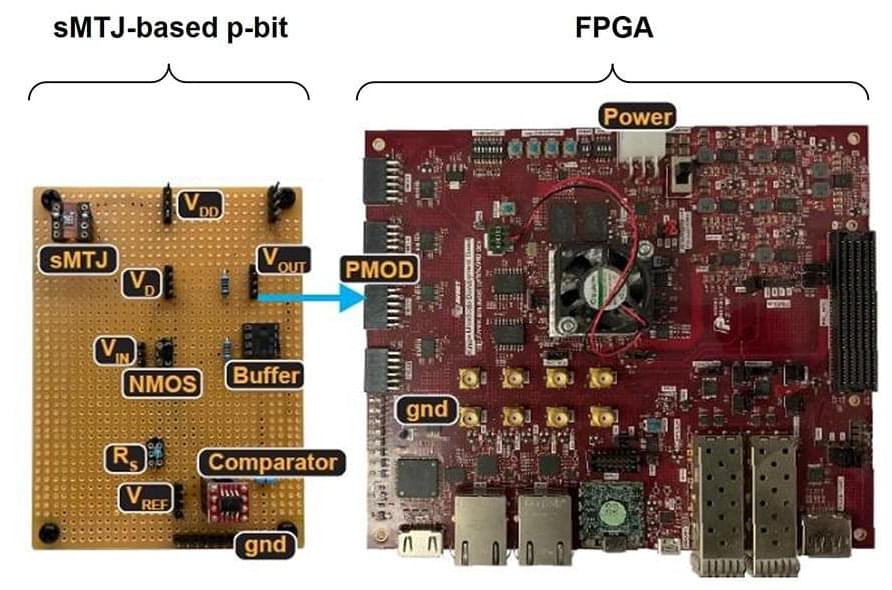Researchers at Tohoku University, the University of Messina, and the University of California, Santa Barbara (UCSB) have developed a scaled-up version of a probabilistic computer (p-computer) with stochastic spintronic devices that is suitable for hard computational problems like combinatorial optimization and machine learning.
Moore’s law predicts that computers get faster every two years because of the evolution of semiconductor chips. While this is what has historically happened, the continued evolution is starting to lag. The revolutions in machine learning and artificial intelligence means much higher computational ability is required. Quantum computing is one way of meeting these challenges, but significant hurdles to the practical realization of scalable quantum computers remain.
A p-computer harnesses naturally stochastic building blocks called probabilistic bits (p-bits). Unlike bits in traditional computers, p-bits oscillate between states. A p-computer can operate at room-temperature and acts as a domain-specific computer for a wide variety of applications in machine learning and artificial intelligence. Just like quantum computers try to solve inherently quantum problems in quantum chemistry, p-computers attempt to tackle probabilistic algorithms, widely used for complicated computational problems in combinatorial optimization and sampling.
